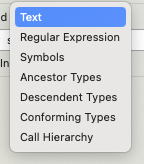There’s not much for him to be concerned about currently, given that he is dead.
As for 16 yo Aaron who wrote that list of hot takes in order of controversy, is it really surprising that a kid that developed an opinion of free speech extremism penned that down?
Especially after being inspired by this article as per his own admission?
The article also helps provide context for the time period this was written in.
Simple possession was still a relatively novel concept and simulated CSAM wasn’t criminal yet in the US.
Don’t misconstrue my own position on the matter, I originate from, and was legally trained in, a jurisdiction that criminalizes hate speech, imposing a significantly broader limit on free speech than the US currently does, and I think that’s the better path to take.
So I personally don’t adhere to free speech extremism.
Nevertheless, while not agreeing with his take, I can see the logic that persuaded him.
It’s essentially the facetious version of “Why stop here, why not also ban hate speech/guns/drugs/etc?”
All of those can be argued to be gateways to the harm of others, perhaps even disproportionately children.
To me it reads as him challenging the logic, not condoning the outcome much less the subsequent consequences. Very edgy indeed.
As for those who bring up that he reinstated his blog multiple times and with it this particular post from when he was 16, as a way to posthumously attribute this to a more older adult version of him; I’m not sure it’s that cut and dry.
As a fundamentalist such as himself it could also just be an exhibition of his free speech extremism perhaps combined with an effort to maintain transparency.
After all, it could suggest an eroding of his beliefs on free speech if he would remove it “now” with little benefit to him since the cat’s already out of the bag, even if he disagreed with his former self at the time of restoring the blog.
A better indication of his opinions later in life would be comments that reaffirm the prior expressed beliefs or, if the suspicion is that he practiced what he preached, one would expect this to have come out during the FBI investigation, considering they went through all his data.
Do I think it’s healthy to consider him a hero, or anyone else for that matter?
No not really, if only because the likelihood of heroes having irreconcilable blemishes is extremely high just by the very virtue of their, let’s say, unique thinking producing the things we love about them but also the things that might cause pause in many.

The US can look at how other countries, that don’t outright provide free education, do it instead of reinventing the wheel.
Getting rid of the discharge protection is only a small part of it.
It’s more important to set a legal maximum for college tuition for accredited institutions.
Then make any subsidies and funds contingent being accredited.
Lastly make federal loans contingent on enrollment to accredited institutions, with the additional benefit of being able to cap the loan amount at a level correlated to the legal maximum tuition (not to be confused with setting at the tuition level because living expenses need to be taken into account as well).
Make the interest rate sub 1%, because the government shouldn’t profit off of you as it is a service and do away with private middle men that administer the loans, instead establishing a special loan administration agency.
This will have as effect that institutions either get in line or lose all government funds and a significant portion of enrollments.
If you then also manage to uphold a uniform quality level that you regularly inspect at the accredited institutions, you’ll end up with a clear, affordable choice of quality education v. unknown quality education that may or may not be a huge waste of non-publicly provided money.
ETA:
You can even take it a step further and follow more examples from abroad in terms of acceptance.
Where you aim to get to a situation that everyone that applies with the pre-requisite prior education credentials, gets accepted.
The way this is often done abroad is with a centralized application process managed by the government, in which you indicate your top 3 preferred colleges, the portal verifies your prior education (as it's centrally registered) and then enrolls you in order of preference.
For some studies, like law school, med school and psychology they'll have more applicants than available spots, and in those cases it's decided by lottery with slightly weighted chances based on your grade average.
The end result is that the vast majority of people automatically get accepted and the ones that don't get in via the lottery are almost guaranteed to be placed the following year.
This solves the whole minority/legacy/etc. acceptance debacle, makes applying for schools less like applying for a job with writing essays and stuffing your resume with a bunch of extracurriculars and in the process makes the accredited institutions even more attractive compared to the potential hold outs that keep doing things the old fashioned way.